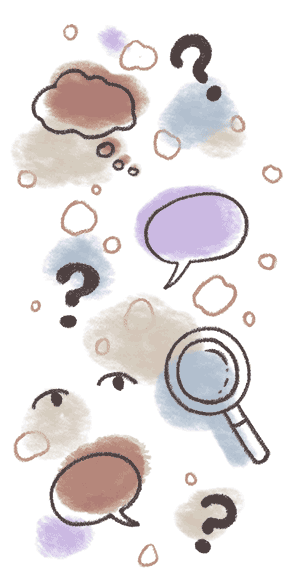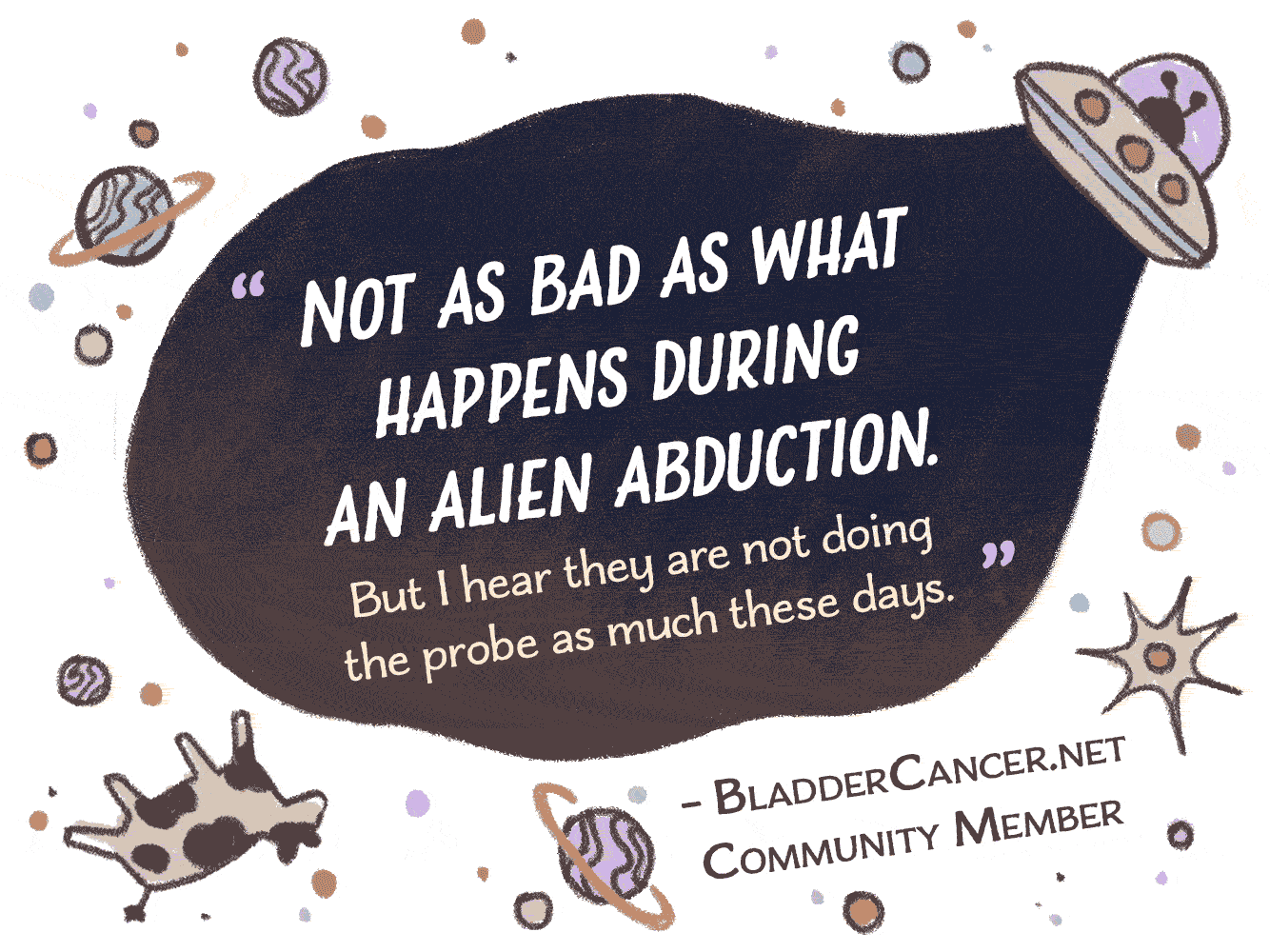Practical Tips for Dealing with the Discomfort of a Cystoscopy

The cystoscopy. Chances are if you are living with bladder cancer, you have had one (or many more). This procedure checks the health of your urethra and bladder. Not only is it used in diagnosing bladder cancer, it also helps doctors monitor and treat people who have already been diagnosed.
What is the cystoscopy experience like? The simple truth: it varies from person to person. We asked our BladderCancer.net community how they deal with the pain and discomfort of a cystoscopy. And they had some great advice to share.



Remember to relax
It can be a challenge trying to feel comfortable when something may be causing discomfort. Meditation is one tool that can help with the pain or anxiety of a cystoscopy. With practice, you can learn to calm the mind and center yourself while the procedure is being performed.
Some find breathing exercises tremendously helpful. Some listen to music or focus their attention on watching the monitor. Then there are others who come up with creative ways to distract themselves.
Whatever technique you choose, you may want to give it a try a time or two before your scheduled cystoscopy. That way you will have some familiarity before your scheduled procedure.


“A few deep breaths while the cystoscope is being inserted helps to relax your muscles. Concentrate on your breathing rather than imagining what is going on down there.”
– BladderCancer.net Community Member
Speak up
Worried about feeling discomfort during a cystoscopy? There are options, like asking for numbing gel, to help take the edge off.
The key takeaway? Speak up. It is important to take an active role in advocating for your needs. Find the right doctor. One who is a fit for you, and who will work with you as a partner in your care.
Only you know what you are feeling, both physically and emotionally. When you communicate with your doctors openly and honestly, they can help you feel more comfortable before, during, and after the procedure.


“The numbing gel worked wonders for me. I was a little nervous the first couple of times. But after that, it was not an issue at all.”
– BladderCancer.net Community Member
Facing fears
For some in our community, the discomfort they are feeling comes from the sheer fear of the unknown.
And it is easy to understand. Just thinking about a cystoscopy can send anxiety into overdrive. For first-timers, they may be wondering: what will the scope show? Will I be diagnosed with bladder cancer? Will this hurt?
For those in remission, every cystoscopy or annual checkup can bring a whole new set of fears. Am I okay? Is my bladder cancer coming back? Recurrence anxiety is very real. To deal, some members of our community adopt a take-each-day-as-it-comes approach. Looking for the good in each moment instead of constantly worrying about what could be.


“It is over before you can blink. Sometimes, it is just the fear of the unknown.”
– BladderCancer.net Community Member
Preparation is a must
For many living with bladder cancer, cystoscopies are an essential part of their care protocol. By doing some preparation and connecting with others on BladderCancer.net, you may be able to find tools and techniques to help make the experience a little easier.
